Planning worship?
Check out our sister site, ZeteoSearch.org,
for 20+ additional resources related to your search.
- |
User Links
Person Results
‹ Return to hymnal
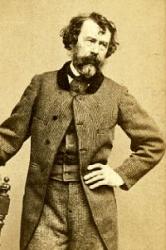
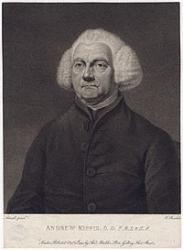
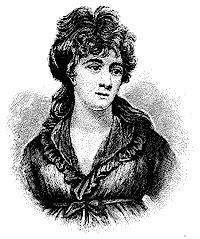
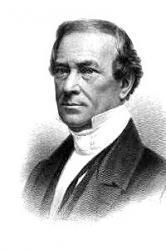
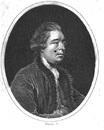
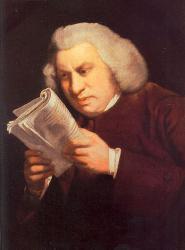
Export as CSV
Nathaniel Parker Willis

1806 - 1867 Person Name: Willis Hymnal Number: 532 Author of "The perfect world by Adam trod" in A Collection of Psalms and Hymns for Christian Worship (6th ed.) Willis, Nathaniel Parker, was born at Portland, Maine, Jan. 20, 1807, and educated at Yale College, graduating in 1826. After writing for a time for the American Monthly Magazine, which he established, and theNew York Mirror, into which the former was merged, he was attached to the American Legation at the French Court. His stay in Europe extended from 1831 to 1837. On his return he became in 1839 one of the editors of The Corsair. His works are numerous, and include Sacred Poems, 1843. He died Jan. 29, 1867. His sister, Mrs. Parton, is the well-known "Fanny Fern." His hymn —"The perfect world by Adam trod" (Dedication of a Place of Worship), was "Written to be sung at the Consecration of Hanover Street [Unitarian] Church, Boston," in 1826, and since then has been widely used, although of no exceeding merit. [Rev F. M. Bird, M.A.]
-- John Julian, Dictionary of Hymnology (1907)
Nathaniel Parker Willis
William Enfield
1741 - 1797 Person Name: Enfield Hymnal Number: 84 Author of "O thou! through all thy works adored" in A Collection of Psalms and Hymns for Christian Worship (6th ed.) Enfield, William , LL.D., born at Sudbury, Suffolk, March 29, 1741, of poor parents. Through the assistance of Mr. Hextall, the local Dissenting Minister, at 17 he entered the Daventry Academy under Dr. Ashworth. His first pastorate was of the congregation at Benn's Garden, Liverpool, to which he ministered from 1763 to 1770. In conjunction with Rev. J. Brekell of Key St. chapel, he edited
A New Collection of Psalms proper for Christian Worship, in three parts. I. Psalms of David, &c. II. Psalms of Praise to God. III. Psalms on various Subjects. Liverpool. Printed in the year 1764. Known as the Liverpool Old Collection; Later eds., 1767, 1770, 1787. In this last, 60 more hymns are added to the 3rd part.
From 1770 to 1785 Enfield was at Warrington, as minister to the Old Presbyterian congregation, and as teacher of Belles-lettres and other subjects, in the Dissenting Academy founded there in 1757. He published in 1774, The Speaker; 1783, Institutes of Natural Philosophy, and other works, including:—
Hymns for Public Worship: selected from Various Authors, and intended as a supplement to Dr. Watts’s Psalms. Warrington. Printed for the Editor, 1772. 3rd ed. 1789. London. Printed for J. Johnson, St. Paul's Churchyard, and W. Kyres, Warrington. Contains 160 hymns, rather more than half being the same as in the Liverpool Collection. In this Collection some of Mrs. Barbauld’s hymns appeared for the first time.
From Warrington he proceeded to Norwich as pastor of the Octagon chapel, and died there Nov. 3, 1797. In 1791 he published an abridgment of Brucker's History of Philosophy , and at the time of his death was engaged with Dr. J. Aikin, son of his late colleague at the Warrington Academy, in bringing out a General Biographical Dictionar , vol. i. 1796. He also published A Selection of Hymns for Social Worship. Norwich. Printed by J. March for J. Johnson, St. Paul's Church¬yard, London, 1795. 2nd ed., 1797 ; 3rd ed., 1802. Lon-don, J. Johnson. Printed by W. Eyres, Horse Market, Warrington. Contains 232 hymns, more than half by Watts, and of the rest 93 were retained from the Warrington Collection.
In this Collection Enfield's own hymns first appeared, “Behold where in a mortal form" (Example of Christ); "Wherefore should man, frail child of clay" (Humility); and "O Thou, through all thy works adored" (God the Ruler of Nature). They are characteristic of the "moral preacher" and the Unitarian, and in taste are unexceptionable. Dr. Enfield received his degree from Edinburgh University. On his death Johnson brought out 3 volumes of his Sermons "on Practical Subjects,” with a Memoir by Dr. Aikin. [Rev. Valentine D. Davis, B.A.]
-- John Julian, Dictionary of Hymnology (1907)
William Enfield
Jane Elizabeth Roscoe Hornblower
1797 - 1853 Person Name: J. Roscoe Hymnal Number: 327 Author of "How rich the blessings, O my God" in A Collection of Psalms and Hymns for Christian Worship (6th ed.) Roscoe, Jane, a second daughter of William Roscoe, was born in 1797, married to Francis Hornblower in 1838, and died in 1853. Her Poems by one of the Authors of Poems for Youth by a Family Circle were published in 1820, and her Poems in 1843, Her hymns in common use are:—
1. How rich the blessings, O my God. Gratitude. In the Liverpool Kenshaw Street Collection 1818.
2. My Father, when around me spread. Peace in Affliction. Appeared in the Monthly Repository, Dec, 1828; and the Sacred Offering, 1832.
3. O God, to Thee, Who first hast given. Self-Consecration. In Poems for Youth, 1820.
4. Thy will be done, I will not fear. Resignation.
[Rev. Valentine D. Davis, B.A.]
--John Julian, Dictionary of Hymnology (1907)
Jane Elizabeth Roscoe Hornblower
Andrew Kippis

1725 - 1795 Person Name: Kippis Hymnal Number: 89 Author of "Great God! in vain man's narrow view" in A Collection of Psalms and Hymns for Christian Worship (6th ed.) Kippis, Andrew, D.D., was born at Nottingham, March 28,1725, and educated for the ministry under Dr. Doddridge at Northampton, 1741-46. After a short residence with congregations at Boston and Dorking, he settled in London in 1753, as minister of the Princes Street Chapel, Westminster. There lie remained till his death in 1795, holding rank as the leading Presbyterian minister in the metropolis. For many years he was classical tutor at the Hoxton Academy, and afterwards at the Hackney College. He contributed largely to the Gentleman's Magazine and the Monthly Review, and edited five volumes of a new edition of the Biographia Britannica, a work commenced in 1778, and interrupted by his death on Oct. 8, 1795. His Life of Captain Cook was also published separately, and to his edition of Lardner's Works (1788) a Memoir was prefixed. His degree of D.D. was con¬ferred by the University of Edinburgh in 1767.
He was joint editor of A Collection of Hymns and Psalms for Public and Private Worship, selected and prepared by Andrew Kippis, D.D., &c. ; Abraham Rees, D.D., &c.; Rev. Thomas Jervis, and Rev. Thomas Mor¬gan, LL.D., London, 1795. This collection, commonly known as Kippis's, but sometimes as Kees's, passed through many editions, a Supplement being added in 1807, and was very generally used during the early decades of this century by congregations of Presbyterians and others, then become Unitarian in London and throughout the country [Unitarian Hymnody, § 9]. It contained 690 hymns.
The aim of the editors in their selection was to avoid “everything of a doubtful or disputable kind," and they adopt the language of Dr. Watts in the preface to his Hymns, "The contentious and distinguishing word of sects and parties are excluded." The alterations and omissions to adapt various hymns to the standard of the editors are considerable, though very little compared to what was done by others before and after them. The tone of the collection is somewhat colourless, and it gradually gave place among Unitarians to others which contained fuller and more varied expression of distinctively Christian feeling.
Two hymns by Kippis appear in this Collection.
1. Great God, in vain man's narrow view, The Incomprehensibility of God, which was generally adopted in later Unitarian books, and appears in Martineau's Hymns, 1840 and 1873.
2. How rich thy gifts, Almighty King, National Thanksgiving, which is four stanzas of the hymn, "Say, should we search the globe around," written for the thanksgiving appointed Nov. 29,1759, and appended to his Sermon on that occasion. It was given in full in Pope's Collection, 1760; and the Liverpool Octagon Collection, 1763. In Lindsey's Collection, 1774, five stanzas are given; in other early books only four, as in Kippis. The last two stanzas, somewhat altered, appear anonymously as: "With grateful hearts, with joyful tongues," in the Congregational Hymn Book, 1836, and the New Congregational Hymn Book, 1859.
[Rev. Valentine. D. David, M.A.]
--John Julian, Dictionary of Hymnology (1907)
Andrew Kippis
Edmund Butcher
1757 - 1822 Person Name: Butcher Hymnal Number: 269 Author of "From north and south, from east and west" in A Collection of Psalms and Hymns for Christian Worship (6th ed.) Butcher, Edmund, born at Colchester, Essex, in 1757, and brought up as a linen-draper. After undergoing a preliminary training for the Unitarian Ministry, he was appointed to the charge of Leather Lane Chapel, Holborn, in 1789. From thence he removed to Sidbury Vale, Sidmouth, in 1798. Died April 14, 1822. Memoir in the Christian Moderator, 1827. His works include Picture of Sidmouth; Tour through various parts of England; Sermons, to which are added suitable Hymns, 1798; and the Substance of the Holy Scriptures Methodized, 1801. His hymns were given in the two latter works, in the Protestant Dissenters’ Magazine (of which he was some time editor); in Kippis's Collection, 1795; the Christian Guardian, 1802-1808; Aspland's Selection, 1810; and from his manuscript in Howse's Selection of Hymns and Psalms, 1837. They number 116 in all; but few, however, have attained to any position in modern hymnals. These include the following:
1. Blest is the man that [who] fears the Lord. Ps. cxii. Published in the Exeter Unitarian Collection, 1812, in 5 stanzas of 4 lines. It is in common use in Great Britain and America.
2. Father of all, where shall we find? Divine Worship. In Dr. Martineau's Hymns, 1840, &c.
3. Great God, as seasons disappear. Harvest. This is the most popular of his hymns. It is annotated under its first line.
4. Hosanna! let us join to sing. Resurrection. Contributed to Aspland's Selection, 1810, No. 290; and repeated in Dr. Martineau's Hymns, 1840, &c.
5. With deepest reverence at Thy throne. God's Unsearchableness. This is in American common use as in Laudes Domini, 1884, No. 248. It was contributed to Aspland's Selection, 1810, No. 146.
-- John Julian, Dictionary of Hymnology (1907)
Edmund Butcher
Amelia Opie

1769 - 1853 Person Name: Mrs. Opie Hymnal Number: 81 Author of "There seems a voice in every gale" in A Collection of Psalms and Hymns for Christian Worship (6th ed.) Opie, Amelia, née Alderson, daughter of Dr. Alderson, a physician at Norwich, was born there Nov. 12, 1769. In May 1798 she was married to John Opie, the painter, who died in 1807. Originally Mrs. Opie was an Unitarian, but in 1814 she joined the Society of Friends. Most of her subsequent life she lived at Castle Meadow, Norwich, where she died Dec. 2, 1853. Mrs. Opie's prose works were somewhat numerous, and included Father and Daughter, 1801, a most popular tale; Temper, 1812; Tales of Real Life, 1813; and others. Her poetical works were Miscellaneous Poems, 1802; The Warrior's Return and Other Poems, 1808; Lays for the Dead, 1833, &c. Very few of her poems have come into use as hymns. The best known is “There seems a voice in every gale."
--John Julian, Dictionary of Hymnology (1907)
===================
Opie, Amelia , p. 871, i. Another hymn by Mrs. Opie in common use is "When the disciples saw their Lord" (Travel by Sea and Land), in Com. Praise 1879. Dated 1838.
--John Julian, Dictionary of Hymnology, Appendix, Part II (1907)
Amelia Opie
Andrews Norton
1786 - 1853 Person Name: Norton Hymnal Number: 329 Author of "My God, I thank thee! may no thought" in A Collection of Psalms and Hymns for Christian Worship (6th ed.) Norton, Andrews, D.D., son of Samuel Norton, was born at Higham, Massachusetts, Dec. 31, 1786, and was educated at Higham, and at Harvard College. After being engaged there for a short time as a tutor, he was appointed Librarian, and subsequently Lecturer on Biblical Criticism, as successor to Dr. Channing. When the Theological School was opened in 1819 he became Dexter Professor of Literature. This position he held until 1830. He died at Newport, Rhode Island, Sept. 18, 1853. He was for some time editor of the General Repository and Review, and published several prose works, one of the most extensive being The Genuineness of the Gospels, in 4 volumes. His hymns are few in number, and are mainly meditations in verse. They were contributed to various periodicals, and after his death were collected and published in a small volume. Of these hymns the following are in common use:--
1. Another year, another year, The unceasing rush, &c. Close of the Year. Appeared in the Christian Examiner in Nov. and Dec. 1827, in 11 stanzas of 4 lines. It is used in an abbreviated form. In the American Boston Unitarian Hymns [&Tune] Book, 1868, it begins with st. vi., "O what concerns it him whose way."
2. Faint not, poor traveller, though thy way. Fortitude. Printed in the Christian Disciple, July and Aug., 1822, in 7 st. of 4 1., and again in the West Boston Collection, 1823.
3. He has gone to his God, he has gone to his home. Burial. Printed in the Christian Examiner, Jan. and Feb., 1824.
4. My God, I thank Thee! may no thought. Trust and Submission. Appeared in the Monthly Anthology and Boston Review, Sept., 1809. This is his earliest and best known hymn.
5. 0 stay thy tears:for they are blest. Burial of the Young. Printed in the General Repository and Review, April, 1812, in 5 st. of 4 1. In 1855, st. iii.-v. were given in Beecher's Plymouth Collection, No. 1094, as "How blest are they whose transient years."
6. Where ancient forests round us spread. Dedication of a Church. This "Hymn for the Dedication of a Church," is dated 1833.
These hymns are in some of the American hymnals. Nos. 1, 4, 5 are in Martineau's Hymns, 1873, and the full texts of all are in Putnam's Singers and Songs of the Liberal Faith, Boston, U.S.A., 1875. [Rev. F. M. Bird, M.A.]
--John Julian, Dictionary of Hymnology (1907)
Andrews Norton
N. L. Frothingham

1793 - 1870 Person Name: Frothingham Hymnal Number: 534 Author of "O God, whose presence glows in all" in A Collection of Psalms and Hymns for Christian Worship (6th ed.) Frothingham, Nathaniel Langdon, D.D., born at Boston July 23rd, 1793, and graduated at Harvard 1811, where he was also sometime Tutor. From 1815 to 1850 he was Pastor of the First Church (Unitarian), Boston, and subsequently attended as a worshipper the church where he had been 35 years minister till his sight and strength failed him. He died April 4th, 1870.
His Metrical Pieces, in 2 volumes, were published in 1855 and 1870.
1. O God, Whose presence glows in all. Ordination. This was written in 1828 for the ordination of W. B. Lunt, New York.
2. We meditate the day . Installation. Written in 1835 for Mr. Lunt's installation at Quincy, Mass., as Co-pastor with Peter Whitney.
3. O Lord of life and truth and grace . Ordination. Also a special hymn. It was composed for the ordination of H. W. Bellowes, New York, 1839. It is found in common with Nos. 1 and 2 in Frothingham's Metrical Pieces, 1855. These Metrical Pieces are unknown to the English Collections. [Rev. F. M. Bird, M.A.]
--John Julian, Dictionary of Hymnology (1907)
================
Frothingham, N. L. , p. 400, ii. Other hymns are:—
1. O Saviour, Whose immortal word. Opening of a Place of Worship. Written "For the Dedication of the Church of the Saviour, Boston, November 16, 1847."
2. Remember Me, the Saviour said. Holy Communion.
3. They passed away from sight. Death and Burial.
4. When I am weak, I'm strong. Spiritual Strength. Nos. l, 2, and 4 are from his Metrical Pieces, Translated and Original, 1855,
--John Julian, Dictionary of Hymnology, Appendix, Part II (1907)
N. L. Frothingham
John Hawkesworth

1715 - 1773 Person Name: Hawkesworth Hymnal Number: 40 Author of "In sleep's serene oblivion laid" in A Collection of Psalms and Hymns for Christian Worship (6th ed.) Hawkesworth, John, LL.D. (b. 1715, and d. Nov. 1773), a writer in the Gentleman's Magazine, proprietor and editor of the Adventurer, and friend of Johnson, Warton, and other literary men of note, published, in 1760, Poems and Translations, and was the author of the well-known Morning hymn "In sleep's serene oblivion laid." This hymn was composed in 1773, "about a month before his death, in a wakeful hour of the night, and dictated to his wife on rising. It appeared in the Universal Theological Magazine for March, 1802." (Miller's Singers & Songs, &c, p. 210.) It was given in Collyer's Selection, 1812; the Leeds Hymn Book, 1853; and others; and is in somewhat extensive use in America. It sometimes begins, as in the American Unitarian Hymns for the Church of Christ, 1853, with stanza ii., "Newborn, I bless the waking hour."
-- John Julian, Dictionary of Hymnology
John Hawkesworth
Samuel Johnson

1709 - 1784 Person Name: Dr. Johnson Hymnal Number: 384 Author of "O thou whose power o'er moving worlds presides" in A Collection of Psalms and Hymns for Christian Worship (6th ed.)
Samuel Johnson


 My Starred Hymns
My Starred Hymns


